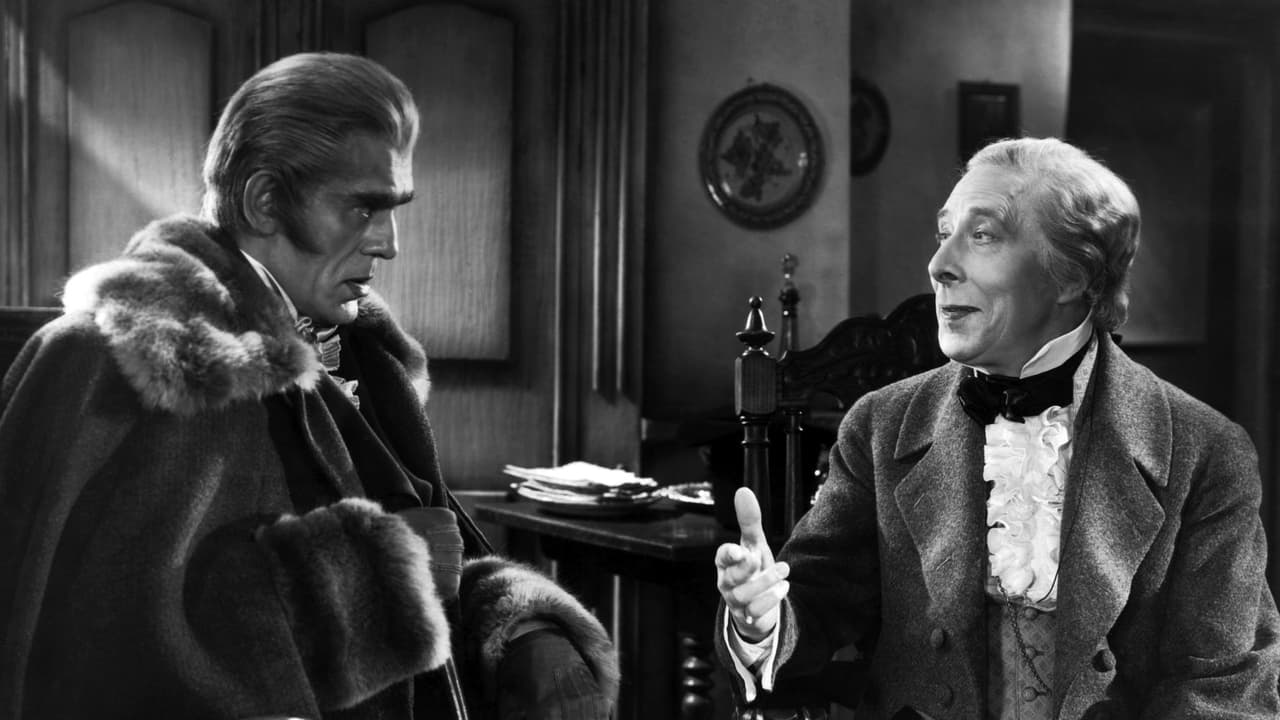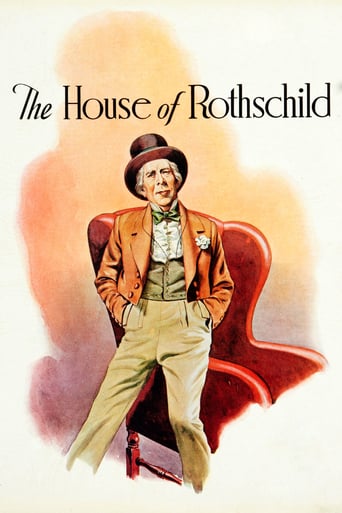



Please don't spend money on this.
Most undeservingly overhyped movie of all time??
Simple and well acted, it has tension enough to knot the stomach.
View MoreLet me be very fair here, this is not the best movie in my opinion. But, this movie is fun, it has purpose and is very enjoyable to watch.
View MoreThis would never have made it past the producers, the Breen Office, or the German representatives in Hollywood a year or two later. It opens with what appears to be an outlandish parody of Jewish life in 1780s Prussia. The father (Arliss) is a money lender or pawn broker or something, overacting to beat the band. He and his family run around their humble household when they see the tax collector coming. Arliss wrings his hands and in a quivering voice orders the rest to hide the silverware and the roast, and to break out the second set of books. The sneering tax collector is amenable to a bribe, and when he leaves, the family cackled over how they outwitted him and saved money on the deal. It sets the stereotype in cement -- greedy, money-mongering, clannish cheaters.It develops that there were reasons enough for the family's worry. The Jews of Frankfort all live in "Jew Street" and are taxed at a far higher rate than the mayor himself. The government is corrupt and openly anti-Semitic. But all that has little impact on the unwittingly comic scene of the poor Rothschild's noisily dashing about and trying to hoodwink the tax collector. The old man dies at the end, advising his sons to go out into the world and establish a vast banking empire because "money is the only power we have." The four or five sons follow his orders and we skip to the Napoleonic period an focus on Nathan Rothschild (Arliss, again). The family is fabulously rich and it becomes even more so by betting against Napoleon in both wars. Despite the anti-Semitic feelings among the Allied leaders, Nathan bets everything he has and manages to save all of Europe from extinction.They've done what they could with the story but banking is essentially a boring business, I guess. I certainly have no interest in it and there were some arguments about points being up or down that left me in the dust. There is a sub-theme done with quiet subtlety. Nathan's daughter, Loretta Young, wants to marry a Captain of the Guards, Robert Young, a Gentile. And Nathan is faced with the same problem as Tevyev in "Fiddler on the Roof," the best line of which came from a young Russian who asks one of Tevyev's daughters, "Do you feel about me the way that they feel about you?" When Benny develops a warm feeling for a shiksa in "The Benny Goodman Story", Goodman's mother phrases the issue in terms of social class: "Bagels and caviar don't mix." The underlying questions have to do with the group loyalty of minority groups who have been victimized and the social borders they themselves create, but that's another story.There has always been intolerance, here and in Europe. Minorities are often discriminated against. But my understanding is that the Jews of Germany and elsewhere, like the Rothschilds were doing a pretty good job of being assimilated -- poets, doctors, bankers, scientists -- until the changing times brought disaster. By contrast, the Jews of Eastern Europe held niche occupations in smaller cities and towns. My immigrant German grandfather lived in one of those villages and I once asked him about the Jews when he was growing up. Of course there were Jews. They were money lenders. Why were the Jews the money lenders? "They ver dzha only pipple in dzha village you could trust." He was entirely serious.Didn't the Rothschilds make fine wine too? I'd like to learn more about that. Wine is more interesting than banking.
View MoreA dramatic, inter-generational history of the House of Rothchild. Most people have a vague notion of the Rothchild banking dynasty, but like me, probably didn't know the history and pain that went with it. This story covers the origin and evolution of that dynasty and an explanation of it's motivation. The story centers around the elder brother, Nathan, played by George Arliss and his four brothers. I have to admit that I never saw the George Arliss magic until I saw this picture. He really was a major talent, although he was quite old when he did this. We see the family breaking out of "Jew Street" in Frankfurt, and establishing banks throughout Europe while struggling to overcome anti-semitic attitudes and actual pogroms. There are some personal vignettes involving Loretta Young as Nathan's daughter and her goy suitor played by Robert Young that tend to humanize the family but really don't amount to much. The real story is the family drive to help stabilize a war ravaged Europe and through it, command the respect of a deeply anti-semitic aristocratic European society. The picture paints a rather pastel version of what was probably a grueling battle for acceptance, but it managed to convey a feeling of warmth and respect for the underdog. There are some very nice touches. The family members all touch the mezuzah each time the enter or leave the house. Everybody kisses Mama, and George Arliss shows what appears to be a real tenderness whenever he interacts with Loretta Young. The brothers never appear to be avaricious, but rather an integrated force of will, determined to succeed, yet determined to play by the rules. All in all, an enjoyable and informative docu-drama. Well worth the 90 minutes.
View MoreI just watched this movie House of Rothschild on the Fox Movie Channel. I waited patiently to see the supposed Technicolor ending on this film, but it stayed black and white throughout. I am majorly bummed. Other reviewers here stated they saw a color ending. Were they lying? The starting credits said there would be a Technicolor segment too, but Fox Movie Channel sure doesn't show it! What a disappointment! The movie is very good, but now I am left with a sour attitude about the whole thing, since I was cheated of this supposedly spectacular color ending that should have been there. What gives, Fox Movie Channel? Did you remove it? Any chance of re-instating it? Argh. :(
View MoreThis is quite a rousing film for a biopic, and sports one of Arliss's best performances. Made two years after Hitler's rise to power, the whole subtext of the film is anti-Semitism and the then-current events in Europe. Napoleon is the stand-in for Hitler--the man all peace-loving men must join together to wage war against to secure peace. There are scenes of violence in the Jewish ghetto--stirred up by anti-Semite Karloff. Everything Rothschild does he does to end anti-Semitism; many speeches on this theme. Rothschild's father is shown as a Shylock-type, making money with money, fooling the tax collector, but with reluctance and great bitterness, doing so only because other professions are denied him, and because the tax collector overcharges Jews. C. Aubrey Smith gives a really delightful performance as Wellington. The final scene is one of the first live-action sequences to be made in three-color Technicolor, before BECKY SHARP. The topicality gives the film an immediacy that is often lacking in period films.
View More